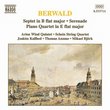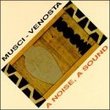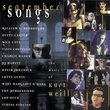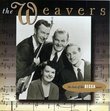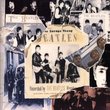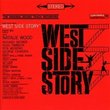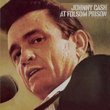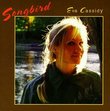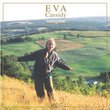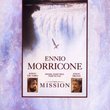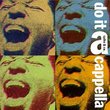| All Artists: Weavers Title: B.O. Vanguard Years Members Wishing: 1 Total Copies: 0 Label: Vanguard Records Release Date: 1/23/2001 Genres: Folk, Pop Style: Traditional Folk Number of Discs: 1 SwapaCD Credits: 1 UPCs: 015707958028, 090204994878 |
Search - Weavers :: B.O. Vanguard Years
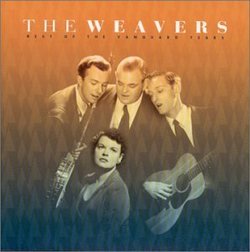 | Weavers B.O. Vanguard Years Genres: Folk, Pop
|
Larger Image |
CD DetailsSimilar CDs
Similarly Requested CDs
|
CD ReviewsPURE WEAVERS Michael D. Zungolo | Philadelphia, PA USA | 07/04/2001 (5 out of 5 stars) "Freed of the godawful string-laden arrangements of their studio recordings, this mostly live anthology showcases the Weavers at their very best. These people could flat-out sing, and in front of an enthusiastic audience the experience is complete. Gorgeous stuff." Many famous songs by a famous quartet... William E. Adams | Midland, Texas USA | 12/05/2003 (4 out of 5 stars) "The Almanac Singers of 1941-42 came first, and if you are reading this you ought to purchase the CD by them called "Songs of Protest." Pete Seeger and Lee Hays, who became half of "The Weavers" in 1949, were Almanacs. By the time they got into the later group, their voices and talents had matured and were in their prime. Add Ronnie Gilbert's lovely voice and Fred Hellerman's all-around musical gifts, and you had just about the only folkie supergroup of their era. The anti-Communist hysteria took The Weavers off the charts and off the mainstream Decca label after '52, which crippled the members financially. In the artistic sense, however, they only got better when they resurfaced in 1955 on Vanguard, mostly with live shows. This disc purports to be the "best" from a half-dozen Vanguard LP's from the late '50's and early 60's. Maybe it is. I think too many of the 24 are bland instead of bold, but that's just my personal preference. On this item, not much social protest is to be found---just "Sixteen Tons" and "Brother Can You Spare a Dime?" and "If I Had a Hammer". I would have liked the inclusion of "Banks of Marble" among others. But that's really a small flaw. The Lee Hays bass vocals are here, and the Pete Seeger tenor, and Ronnie's alto. Good banjo and guitar, and as another reviewer noted, many live recordings, so they are not mucked up with strings and other unneeded orchestral flourishes. The Weavers kept the folk tradition alive and proved there was an audience, and in the late '50's we got The Kingston Trio and The Highwaymen and eventually Bob Dylan and Phil Ochs and so many other acts into the limelight because the Weavers were there first. This is a great introduction to American commercial folk performing: it won't scare anyone, but it might inspire a deeper search into other singers and songwriters, or even other Weavers' records, which have more political and social bite." An excellent introduction to the music of The Weavers Lawrance M. Bernabo | The Zenith City, Duluth, Minnesota | 09/16/2002 (5 out of 5 stars) "I am rather embarrassed that it took me as long to discover the Weavers as it did. After all, in the Sixties I was listening to the Smothers Brothers do their versions of "Tzena Tzena," "Michael Row the Boat Ashore," and "Marching to Pretoria." Even those who missed out on the folk music revival have heard "Wimoweh" (a.k.a. "The Lion Sleeps Tonight"), "Wreck of the 'John B.,'" and "The House of the Rising Sun," but you can certainly do that without having heard about the Weavers. Certainly you mention "If I Had A Hammer" and you are going to have most people say Peter, Paul & Mary rather than the Weavers. But get them to sit down and listen to "The Weavers: Best of the Vanguard Years," and it is not just their ears but also their eyes that are going to be opened.They will discover those songs that remain uniquely songs of The Weavers, such as "Kisses Sweeter Than Wine" and "Goodnight Irene," but they will also learn about another major piece in the history of American folk music going way back before Bob Dylan and Joan Baez. Of course, that road back eventually leads to Woody Guthrie, America's troubadour.The Weavers are Pete Seeger, tenor and banjo; Ronnie Gilbert, alto; Lee Hays, baritone and bass; and Fred Hellerman, baritone and guitar. These 24 tracks are collected from the 1950s and 1960s, taken from the albums "The Weavers at Carnegie Hall," "The Weavers on Tour," "The Weavers Reunion at Carnegie Hall," "The Weavers At Home," "Traveling On with The Weavers," and "The Weavers Almanac," along with two previously unreleased live tracks from performances at the Newport Folk Festival in 1960. I have to think it is pretty hard to stop at one Weaver's album once you have heard them sing, but this collection is an excellent starting point in learning more about the glorious history of American Folk Music."
|

 Track Listings (24) - Disc #1
Track Listings (24) - Disc #1
